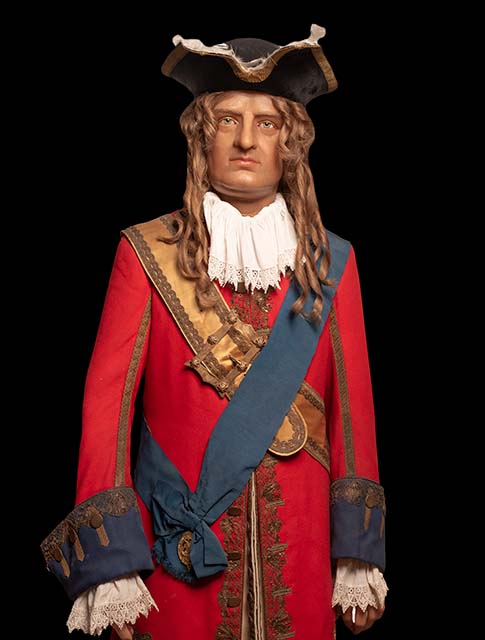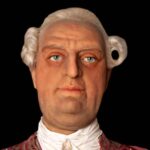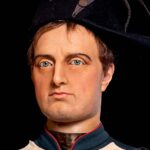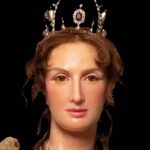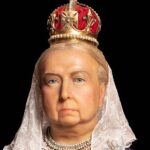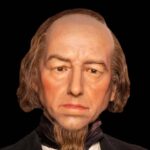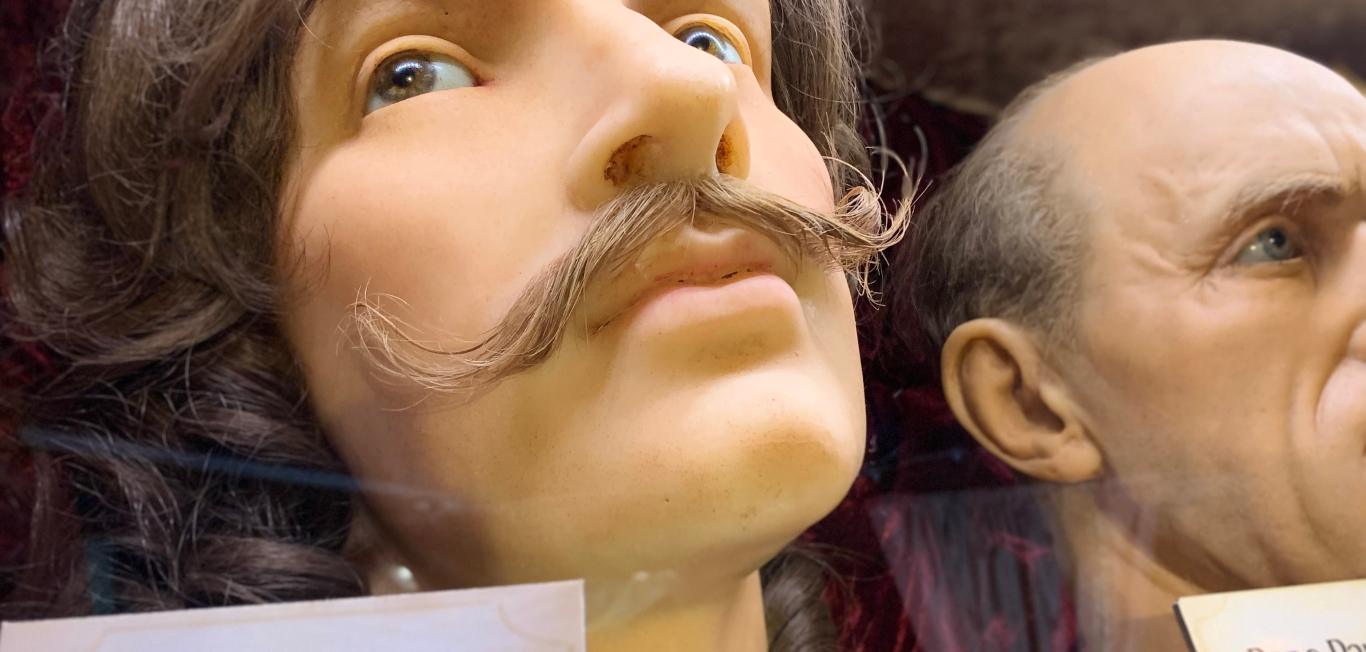He was an influential figure in British history. He was widely regarded as a military genius because his exploits on the battlefield and skillful navigation of the political landscape left an indelible historical mark on the 17th and 18th centuries. Born in 1650 in Ashe, Devon, England, John Churchill’s rise from humble beginnings to the highest echelons of power and influence reflects the unrelenting ambition and strategic brilliance he had throughout his life. From his early days as a member of the Foot Guards to his most critical leadership roles in the Glorious Revolution and the War of the Spanish Succession, John Churchill’s military career was marked by a string of resounding victories, including the Battles of Blenheim, Ramillies, Oudenaarde, and Malplaquet. These victories solidified his reputation as one of Europe’s greatest generals and earned him the admiration of both his enemies and allies. He was also a skilled statesman and diplomat. These skills were reflected in how he was able to steer England through major crises during its most difficult period.
Early Years
The life of John began on May 26, 1650, in Ashe, Devon, England, where John Churchill, the future 1st Duke of Marlborough, was born to Winston and Elizabeth Churchill. The second-born, John Churchill was the family’s eldest surviving son. During his childhood, the Churchill family faced many financial struggles, but John’s natural talents and determination were evident from an early age.
In his early years, John Churchill’s family resided in Ireland, where young John also began attending the Free School for his initial education. After a few years, John enrolled at St. Paul’s School in London, which is widely credited with shaping his formative years. Unfortunately, Churchill’s education at St. Paul’s School was cut short after three to four years due to the Great Plague of London, which disrupted the entire city. This endeavor, however, did not deter Churchill. After completing primary and secondary education, he was enrolled at the prestigious institution, where he excelled in his studies and demonstrated a keen intellect.
Personal Life
The life of John Churchill, 1st Duke of Marlborough, was not only marked by his military triumphs but also his personal life. A pivotal moment was his marriage to Sarah Jennings in 1678. Throughout their marriage, Churchill and Jennings welcomed seven children into their family. Their children were Harriet; Henrietta; Anne; John, Marquess of Blandford; Elizabeth; Mary; and Charles. This brood of children turned out to be an integral part of the Churchill family legacy. Despite the demands of his military campaigns and political responsibilities, Churchill remained devoted to his wife and children.
DID YOU KNOW?
His rise from humble beginnings to the highest echelons of power and influence reflects the unrelenting ambition and strategic brilliance he had throughout his life.
Military Career
John Churchill’s military journey began as an ensign in the Foot Guards, but his ambition and skill quickly propelled him through the ranks. His first taste of combat came abroad in the English colony of Tangier, where he gained invaluable experience that would later shape how he led the British forces in future expeditions. During the Third Anglo-Dutch War (1672-1674), Churchill served with the Allied forces that were defeated at the Battle of Solebay on May 28, 1672. Despite the defeat, Churchill’s valor and leadership during that military operation earned him a promotion, and it subsequently laid the foundation for his rise in the military ranks. Churchill also fought in the Franco-Dutch War (1672-1679) as part of the English contingent in French service. This war further enhanced Churchill’s tactical acumen, as it gave him insights into the strategies of England’s continental rivals. As the Nine Years’ War (1688-1697) erupted, Churchill’s reputation as a skilled military leader and commander had grown immensely. He participated in a campaign in Flanders and briefly held an independent command during the Williamite War in Ireland (1689-1691).
Churchill’s military talent did not go unnoticed by the French King Louis XIV. In 1674, he was appointed the colonel of the English regiment. At the Battle of Entzheim, Churchill served with distinction, solidifying his reputation as a rising star in the military ranks. The accession of James II in 1685 proved pivotal for Churchill’s career because he was appointed lieutenant general and later became effectively commander in chief. However, Churchill’s loyalty was tested during this period, as he maintained contact with the exiled James II in Saint-Germain from January 1691. This need for John Churchill to remain neutral between allegiances led to him abandoning James II and instead supporting William of Orange during the Glorious Revolution.
It was during the War of the Spanish Succession (1701-1714) that John Churchill cemented his legacy as one of history’s greatest military minds. He consistently outmaneuvered his opponents and emerged victorious in every battle he fought, including the monumental triumphs at Blenheim (1704), Ramillies (1706), Oudenaarde (1708), and Malplaquet (1709). Churchill’s military and political career had many historical and pivotal moments, including becoming a page to James, Duke of York, in 1660, fighting in the Third Anglo-Dutch War in 1672, assuming the title of Lord Churchill of Eyemouth in 1682, and participating in the Monmouth Rebellion in 1685.
Churchill’s decision to shift his allegiance from James II to William of Orange in 1688 during the Glorious Revolution marked a turning point in his fortunes. William of Orange appreciated his unwavering support by elevating him to the position of Earl of Marlborough in 1689, and this set the stage for Churchill to become even more successful as a military leader. However, Churchill’s journey as a military leader also had some notable challenges, such as his imprisonment in the Tower of London in 1692.
DID YOU KNOW?
John Churchill's military career was marked by a string of resounding victories. These victories solidified his reputation as one of Europe's greatest generals and earned him the admiration of both his enemies and allies
Interesting Facts About John Churchill
- As an English soldier and politician, he rose to great heights, becoming one of the few “commoners” in English history to attain the rank of duke.
- In 1692, he spent five weeks imprisoned in the Tower of London on a charge of treason, a testament to the political turbulence of the era.
- His role in the Glorious Revolution, where he betrayed his benefactor James II, has been criticized as a selfish betrayal, casting a shadow over his legacy.
- The grand castle of Blenheim Palace was gifted to Churchill as a reward for his military victories. It remains inhabited by his descendants to this day.
What Is John Churchill Known For?
John Churchill, 1st Duke of Marlborough, is renowned as one of Britain’s greatest military leaders. Known by various titles, including 1st Duke of Marlborough, Marquess of Blandford, and Reichsfürst, Churchill pursued a distinguished military career that etched his name in history. He played a critical role in crushing the Duke of Monmouth’s rebellion in 1685 and this showcased his strategic brilliance from an early age. Churchill’s fame reached its zenith when he acted as the de facto leader of Allied forces in the Low Countries, and his victories at Blenheim (1704), Ramillies (1706), Oudenarde (1708), and Malplaquet (1709) ensured his place as one of Europe’s great generals.
Beyond his military exploits, Churchill is renowned for his role in guiding England through major crises during the 17th and 18th centuries, demonstrating his ability to navigate complex political landscapes. His numerous victories on the battlefield secured his legacy as one of the greatest military commanders in history. In addition, his military achievements solidified his status as a supreme military leader in British history.
Late in Life
John Churchill, 1st Duke of Marlborough, reached his final chapter on the morning of June 16, 1722, when the celebrated military leader and statesman breathed his last at Cumberland Lodge in the United Kingdom. Churchill’s death signified the passing of one of Britain’s most influential figures. It also marked the end of a man who left an indelible mark on the country’s history through his military triumphs and political maneuverings. To date, the name John Churchill, 1st Duke of Marlborough, continues to be upheld in the annals of history as a true icon of British military and political accomplishments.
LEGACY
John Churchill continues to be upheld in the annals of history as a true icon of British military and political accomplishments.
FAQs
Which battles did John Churchill win?
First Duke of Marlborough, John Churchill’s famous victories included the Battle of Blenheim (1704), the Battle of Ramillies (1706), the Battle of Oudenaarde (1708), and the Battle of Malplaquet (1709).
What were John Churchill’s notable achievements?
John Churchill’s most notable achievements included his pivotal role in the Glorious Revolution; his decisive victories at Blenheim, Ramillies, Oudenaarde, and Malplaquet during the War of the Spanish Succession; and his skillful navigation of England’s political landscape.
Did John Churchill face any military setbacks or defeats?
John Churchill’s most notable defeat occurred early in his career during the Third Anglo-Dutch War in 1672. During this War, Churchill served with the Allied fleet that was defeated at the Battle of Solebay.
How is John Churchill remembered today?
John Churchill is remembered today as one of Britain’s greatest military commanders and statesmen due to his victories, particularly during the War of the Spanish Succession.
